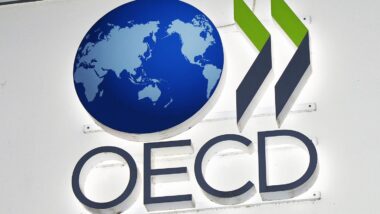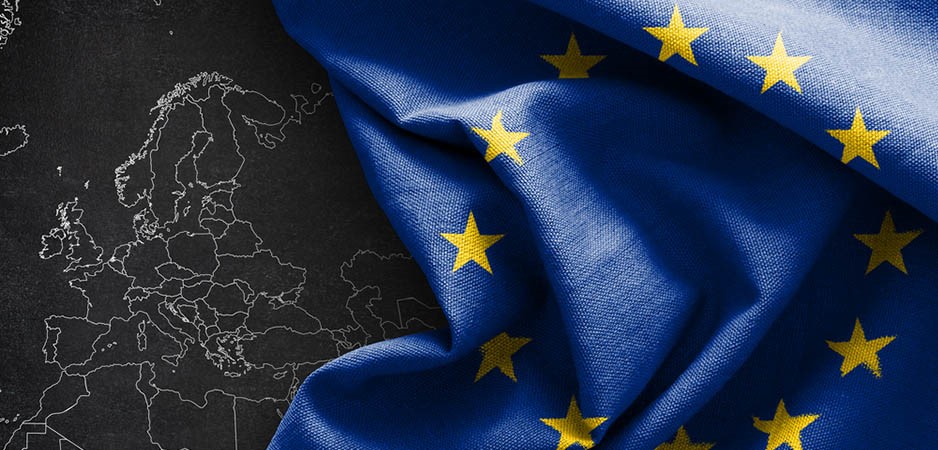In a press release of 24 May 2024,[1] the EU Council announced the adoption of the Corporate Sustainability Due Diligence Directive (CSDDD), which introduces obligations and responsibilities for large companies regarding the negative impacts of their activities on the respect for human rights and the protection of the environment.
“Large companies must take their responsibilities in the transition towards a greener economy and more social justice. The Corporate Sustainability Due Diligence directive will give us the possibility to sanction those actors that violate their obligations. It is a concrete and significant step towards a better place to live for everyone” said in the press release Pierre-Yves Dermagne, Belgian Deputy Prime Minister and Minister of the Economy and Employment.
The CSDDD requires companies to perform thorough human rights and environmental due diligence in relation to their own operations, as well as the operations of their subsidiaries and business partners in their supply chains. The due diligence procedure outlined in the CSDDD encompasses the six elements outlined in the OECD Due Diligence Guidance for Responsible Business Conduct:[2] (1) Incorporating thorough research and investigation into policies and management systems, (2) Identifying and evaluating negative effects on human rights and the environment, (3) Preventing, stopping, or reducing both current and potential negative impacts on human rights and the environment, (4) Evaluating the efficiency of implemented measures, (5) Communicating information effectively, (6) Offering compensation or solutions to address any harm caused.
Background
The CSDDD, which was first introduced by the European Commission in February 2022,[3] outlines the responsibilities of companies to identify, evaluate, prevent, reduce, address, and rectify the negative effects on both people and the environment. These effects include issues such as child labour, slavery, pollution, emissions, deforestation, and harm to ecosystems. The obligations extend to the entire supply chain, from the initial stages to downstream activities like distribution and recycling.
In December 2023, the EU Parliament and Council came to an agreement on new legislation.[4] However, the approval vote in the Council was delayed in January due to Germany’s threat to withhold support.[5] Germany expressed concerns about the logistical and possibly legal consequences that the rule could have on companies. The legislation faced more uncertainty when Italy apparently withdrew its support, resulting in its failure to be passed in late February. France made a last-minute attempt to greatly reduce the extent of the new rules, limiting them to only the largest corporations in the EU.[6]
After making substantial concessions on the law, the Council of the European Union handed final approval to the Corporate Sustainability Due Diligence Directive on May 24, after a four-month political odyssey that nearly resulted in the directive’s failure. The CSDDD holds corporations legally accountable for environmental and human rights violations that take place in their supply chain. To reach an agreement, the final CSDDD proposal was somewhat weakened in comparison to the initial recommendation. One of the main modifications entailed a substantial reduction in the number of companies subject to the legislation. The thresholds were increased to include only companies with a minimum of 1,000 employees, up from 500, and those with revenue above €450 million, up from €150 million. The revised thresholds significantly reduce the number of enterprises subject to the CSDDD by approximately 66%. The previously established lower standards for high-risk industries were eliminated, but they may be reviewed at a later time.
The CSDDD was then approved by the European Parliament on April 24. Subsequently, it was returned to the Council of the European Union for ultimate endorsement. The process commenced in COREPER, which is the Council’s Committee of the Permanent Representatives of the Governments of the Member States to the European Union. A vote was held on May 15. The Council’s Competitiveness Council, often known as COMPET, conducted the final vote on May 24.
Out of the 27 member states of the European Union, 17 voted in favour of the COMPET vote, while 10 chose to abstain. Abstaining from voting has an equivalent impact as casting a vote against the directive, given the voting conditions. The following countries abstained from voting: Austria, Belgium, Bulgaria, Czech Republic, Estonia, Germany, Hungary, Lithuania, Malta, and Slovakia. Supporting the motion are Croatia, Cyprus, Denmark, Finland, France, Greece, Ireland, Italy, Latvia, Luxembourg, Netherlands, Poland, Portugal, Romania, Slovenia, Spain, and Sweden.
Come into effectiveness
Currently, the CSDDD is advancing through the latter phases of the legislative procedure. The EU member states’ Council’s ultimate endorsement on 24th May marks a significant milestone, nearly concluding a 4-year lengthy process. After this vote, the text will be published in the Official Journal of the EU, which will allow Member States to start the process of transposing it into their national laws. Member States will have a period of two years to complete this transposition. The implementation of the regulations will commence gradually, commencing in 2027 and concluding in 2029:
- Starting in 2027, the European Union will require enterprises with more than 5000 employees and a global revenue above 1500 million euros, as well as non-EU corporations with a revenue in the EU surpassing 1500 million euros, to comply with certain regulations.
- Starting in 2028, the new regulations will apply to European Union firms that have a workforce of over 3000 people and generate a global turnover of more than 900 million euros. Additionally, non-EU enterprises will be subject to these regulations if their revenue within the EU exceeds 900 million euros.
- Starting in 2029, the new regulations will apply to European Union enterprises that have more than 1000 employees and a global revenue exceeding 450 million euros. Additionally, non-EU corporations will be subject to these regulations if their revenue from EU operations exceeds 450 million euros.
Nevertheless, it is advisable for enterprises to initiate their actions soon, rather than delaying until the Directive is officially implemented, particularly if they are unfamiliar with due diligence practices.
Actions that firms will be required to take
The foundation for CSDDD is established by utilizing global frameworks that promote ethical business practices, specifically the Guiding Principles on Business and Human Rights (UNGPs) and the aforementioned OECD principles. Hence, it is not a mere chance that numerous concepts encompassed in CSDDD, such as risk-based due diligence, prioritization, stakeholder engagement, and the significance of joint projects, originate from those standards.
Initially, firms will need to build strong risk management systems to detect, prevent, and handle significant human rights and environmental hazards in their own operations, as well as in the operations of their subsidiaries and business partners. This includes activities such as risk assessment, prioritization, stakeholder engagement, transparent communication, and effective monitoring.
The EU Member States’ authorities will be in charge of overseeing adherence to the regulations and imposing penalties, such as fines proportional to the company’s yearly revenue, for any violations. Moreover, they are now required to offer businesses detailed online resources that clearly outline their obligations for due diligence. These materials will be accessible through user-friendly portals and will incorporate the recommendations provided by the European Commission.
Furthermore, member states must establish or designate a regulatory entity with the responsibility to ensure adherence and impose fines on companies that do not fulfill their commitments. The enforcement tactics would vary from publicly exposing the wrongdoers, also known as “naming and shaming,” to imposing fines that might reach up to 5% of a company’s total global net turnover.
In order to promote collaboration and the exchange of exemplary methods, the Commission will establish the European Network of Supervisory Authorities. Moreover, organizations that are found to have breached their obligations to exercise proper care will be held responsible for any resulting harm and will be obligated to fully compensate the affected persons.
Over the next three years, organizations will need to evaluate and modify their existing operational strategies, such as procurement processes, vendor partnerships, supply chain logistics, product research and development, and business models. The specific adjustments required will vary on the size and revenue of each company. Businesses must allocate resources towards implementing comprehensive supply chain traceability systems in order to demonstrate compliance with the standards set forth by the CSDDD.
Overall considerations and conclusions
The discourse surrounding corporate accountability for abuses of human and environmental rights originated in the early 1970s, when efforts were made to prohibit business participation in the South African Apartheid regime.[7] During the 1980s and 1990s, there was a rise in grassroots resistance and mobilization following major disasters such as the oil spills in the Ogoni Delta in Nigeria and the gas leak in Bhopal, India.[8] These events marked a new phase in the efforts to hold corporations accountable for their actions. In fact, as mentioned before, the Directive is founded on the UNGPs of 2011. These principles establish a comprehensive soft-law framework that sets a global standard for preventing and correcting the negative effects of corporations. The UNGPs were commonly seen as a valuable point of reference, but their lack of legal obligation caused many corporations to fall short in their efforts to avoid, reduce, and compensate for human rights abuses and environmental harm. Consequently, the transformation of the principles into obligatory legislation was an essential measure to guarantee adherence. The compromise text agreed upon by EU member states closely corresponds to the UNGPs, although there are notable disparities concerning the restriction on the number of companies covered by the CSDDD, limitations within the downstream segment of the supply chain, and the exclusion of the financial sector, among other examples.
The primary objective of the law is to ensure the safeguarding of human and environmental rights, holding accountable those who infringe upon such rights, and prioritizing the interests of individuals entitled to these rights in discussions and deliberations. Does the conclusion have the ability to achieve this aim, or will it just create excessive reporting requirements without significantly impacting human rights and environmental protection? While certain advancements in human rights and environmental protection may have been compromised during political debates, the Directive nevertheless has the ability to establish a solid foundation and fulfill its intended goal. The crucial factor for transforming it into an efficient instrument for safeguarding human rights and the environment will be the incorporation into domestic laws and the successful execution.
References
- European Council (24 May 2024), Corporate sustainability due diligence: Council gives its final approval. Press Release. Available at https://www.consilium.europa.eu/en/press/press-releases/2024/05/24/corporate-sustainability-due-diligence-council-gives-its-final-approval/ ↑
- OECD (2018), OECD Due Diligence Guidance for Responsible Business Conduct. Available at https://mneguidelines.oecd.org/OECD-Due-Diligence-Guidance-for-Responsible-Business-Conduct.pdf ↑
- European Council (24 February 2024), Proposal for a DIRECTIVE OF THE EUROPEAN PARLIAMENT AND OF THE COUNCIL on Corporate Sustainability Due Diligence and amending Directive (EU) 2019/1937. 6533/22. Available at https://data.consilium.europa.eu/doc/document/ST-6533-2022-INIT/en/pdf ↑
- European Council (14 December 2023). Corporate sustainability due diligence: Council and Parliament strike deal to protect environment and human rights. Press release. Available at https://www.consilium.europa.eu/en/press/press-releases/2023/12/14/corporate-sustainability-due-diligence-council-and-parliament-strike-deal-to-protect-environment-and-human-rights/ ↑
- Christian Kraemer (25 January 2024), German support for EU supply chain law in doubt. Reuters. Available at https://www.reuters.com/world/europe/german-support-eu-supply-chain-law-doubt-2024-01-25/ ↑
- European Coalition for Corporate Justice (28 February 2024), France strikes again to undermine the CSDDD. Available at https://corporatejustice.org/news/france-strikes-again-to-undermine-the-csddd/ ↑
- Bennett Freeman (10 November 2020), A quarter-century later: The unfinished business of Ken Saro-Wiwa and the Ogoni Nine. Business & Human Rights Research Centre. Available at https://www.business-humanrights.org/en/blog/a-quarter-century-later-the-unfinished-business-of-ken-saro-wiwa-and-the-ogoni-nine/ ↑
- Edward Broughton (10 May 2005), The Bhopal disaster and its aftermath: a review. Environ Health; 4(1):6. doi: 10.1186/1476-069X-4-6. PMID: 15882472; PMCID: PMC1142333. ↑





